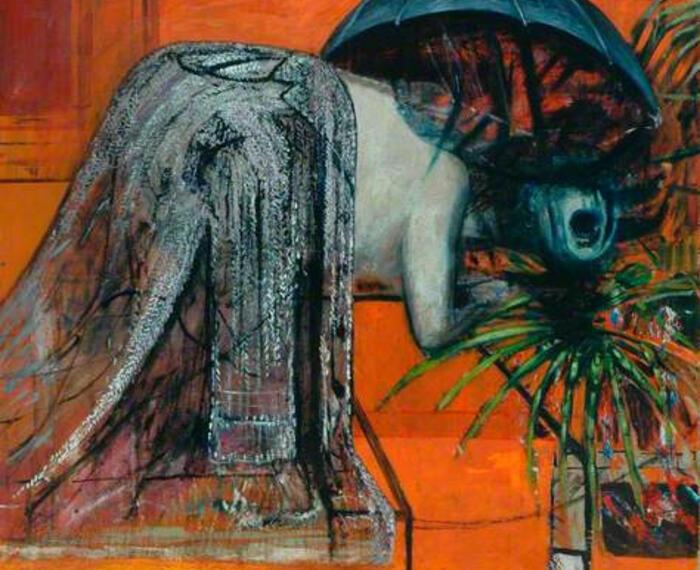Phoebe Collings-James practice comes from a desire to work with clay as a live, sculptural surface, and from previous black oil-slick paintings she had produced on canvas. These two ways of making converged into her current process, which allows for the incorporation of resonant symbols and textures. She describes her work as ‘emotional detritus’ as they speak of the feelings and experiences of living, surviving and desiring within hostile environments and the artist hopes that viewers have a sensory reaction.
The first question in the title How many times can I surrender to you? is from a poem Collings-James wrote last year and the second declaration in brackets is from Nothing Beautiful, a song by Beverly Glenn Copeland. The title has an ambiguous tense – ‘you’ and ‘your’ could be another or one's own self. Surrender is thought of as both relinquishing and harnessing control.
This piece reflects how Collings-James was feeling at the time, an expression of a desire for wholeness in the midst of grief. The ceramic painting shows a figure stretching themselves out - with legs and toes crawling one way and a face, tongue and hands clawing in the other, covered with symbols, scrawls and forged plant pressings. Through the medium of clay they can seem more alive than through painting, as they pop and crack when coming out of the kiln.
In a time when she felt depleted, Collings-James used Copelands’s music and deepening her spiritual practice with meditation for support. This helped her explore a tension between self and other, and led to the realisation that ideas such as healing work, forgiveness, decolonialization and surrender must begin internally. It also relates to how on the clay surface the word ‘you’ is crossed out and corrected to ‘me’, asking how many times can a person surrender to themselves?
The acquisition of Phoebe Collings-James’ glaze ceramic is a meaningful addition to York Art Gallery’s large collection of Decorative Arts and Studio Pottery. The museum has recently updated its collection remit and is focusing on supporting early career artists with the hope that this institutional support will have a positive impact on the artist's career.

